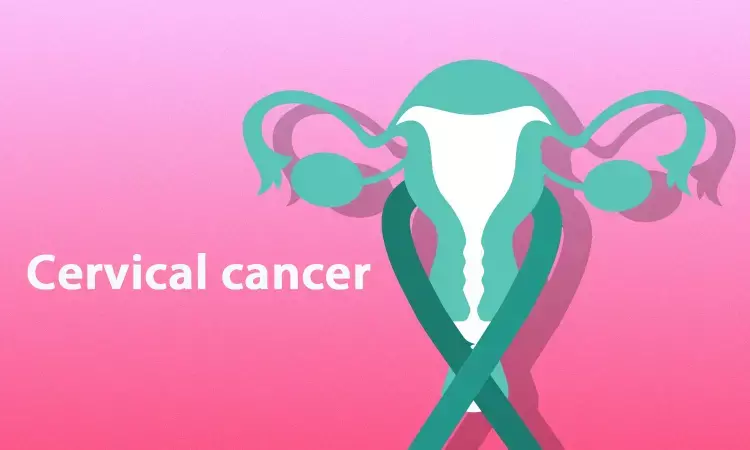- Home
- Medical news & Guidelines
- Anesthesiology
- Cardiology and CTVS
- Critical Care
- Dentistry
- Dermatology
- Diabetes and Endocrinology
- ENT
- Gastroenterology
- Medicine
- Nephrology
- Neurology
- Obstretics-Gynaecology
- Oncology
- Ophthalmology
- Orthopaedics
- Pediatrics-Neonatology
- Psychiatry
- Pulmonology
- Radiology
- Surgery
- Urology
- Laboratory Medicine
- Diet
- Nursing
- Paramedical
- Physiotherapy
- Health news
- Fact Check
- Bone Health Fact Check
- Brain Health Fact Check
- Cancer Related Fact Check
- Child Care Fact Check
- Dental and oral health fact check
- Diabetes and metabolic health fact check
- Diet and Nutrition Fact Check
- Eye and ENT Care Fact Check
- Fitness fact check
- Gut health fact check
- Heart health fact check
- Kidney health fact check
- Medical education fact check
- Men's health fact check
- Respiratory fact check
- Skin and hair care fact check
- Vaccine and Immunization fact check
- Women's health fact check
- AYUSH
- State News
- Andaman and Nicobar Islands
- Andhra Pradesh
- Arunachal Pradesh
- Assam
- Bihar
- Chandigarh
- Chattisgarh
- Dadra and Nagar Haveli
- Daman and Diu
- Delhi
- Goa
- Gujarat
- Haryana
- Himachal Pradesh
- Jammu & Kashmir
- Jharkhand
- Karnataka
- Kerala
- Ladakh
- Lakshadweep
- Madhya Pradesh
- Maharashtra
- Manipur
- Meghalaya
- Mizoram
- Nagaland
- Odisha
- Puducherry
- Punjab
- Rajasthan
- Sikkim
- Tamil Nadu
- Telangana
- Tripura
- Uttar Pradesh
- Uttrakhand
- West Bengal
- Medical Education
- Industry
Cemiplimab significantly increases survival in recurrent cervical cancer: NEJM

Patients with recurrent cervical cancer after first-line platinum-containing chemotherapy lived considerably longer with cemiplimab than with single-agent chemotherapy, says an article published in The New England Journal of Medicine.
Recurrent cervical cancer patients have a dismal prognosis. Cemiplimab, a completely human programmed cell death 1 (PD-1)–blocking antibody that has been licensed for the treatment of lung and skin malignancies, has shown preliminary clinical activity in this population.
For this study, Krishnansu S. Tewari and colleagues enrolled patients who experienced disease progression following first-line platinum-containing chemotherapy, independent of their PD-L1 status, in this phase 3 trial. Women were randomly randomized (1:1) to receive cemiplimab (350 mg every 3 weeks) or a single-agent chemotherapy of the investigator's choice. Overall survival was the major goal. Safety and progression-free survival were also evaluated.
The key findings of this work are as follow:
1. Overall 608 women took part in the study (304 in each group).
2. The cemiplimab group had a better overall survival rate than the chemotherapy group (12.0 months vs. 8.5 months; hazard ratio for death, 0.69; 95% confidence interval [CI], 0.56 to 0.84; two-sided P<0.001) in the entire study population.
3. In both histologic groupings (squamous-cell carcinoma and adenocarcinoma [including adenosquamous carcinoma]), the overall survival benefit was consistent.
4. In the general population, progression-free survival was also longer in the cemiplimab group than in the chemotherapy group.
5. In the whole population, 16.4% of patients in the cemiplimab group had an objective response, compared to 6.3% in the chemotherapy group.
6. With PD-L1 expression more than or equal to 1%, 18% of cemiplimab-treated patients had an objective response, but only 11% of those with PD-L1 expression less than 1% had an objective response.
7. Overall, 45.0% of cemiplimab patients experienced grade 3 or greater adverse events, compared to 53.4% of chemotherapy patients.
In conclusion, the findings of this data shows the efficiency of cemiplimab coupled with chemotherapy for cervical cancer. Further studies are needed to make it a common usable technique.
Reference:
Tewari KS, Monk BJ, Vergote I, Miller A, de Melo AC, Kim HS, Kim YM, Lisyanskaya A, Samouëlian V, Lorusso D, Damian F, Chang CL, Gotovkin EA, Takahashi S, Ramone D, Pikiel J, Maćkowiak-Matejczyk B, Guerra Alía EM, Colombo N, Makarova Y, Rischin D, Lheureux S, Hasegawa K, Fujiwara K, Li J, Jamil S, Jankovic V, Chen CI, Seebach F, Weinreich DM, Yancopoulos GD, Lowy I, Mathias M, Fury MG, Oaknin A; Investigators for GOG Protocol 3016 and ENGOT Protocol En-Cx9. Survival with Cemiplimab in Recurrent Cervical Cancer. N Engl J Med. 2022 Feb 10;386(6):544-555. doi:10.1056/NEJMoa2112187.
Medical Dialogues consists of a team of passionate medical/scientific writers, led by doctors and healthcare researchers. Our team efforts to bring you updated and timely news about the important happenings of the medical and healthcare sector. Our editorial team can be reached at editorial@medicaldialogues.in.
Dr Kamal Kant Kohli-MBBS, DTCD- a chest specialist with more than 30 years of practice and a flair for writing clinical articles, Dr Kamal Kant Kohli joined Medical Dialogues as a Chief Editor of Medical News. Besides writing articles, as an editor, he proofreads and verifies all the medical content published on Medical Dialogues including those coming from journals, studies,medical conferences,guidelines etc. Email: drkohli@medicaldialogues.in. Contact no. 011-43720751


